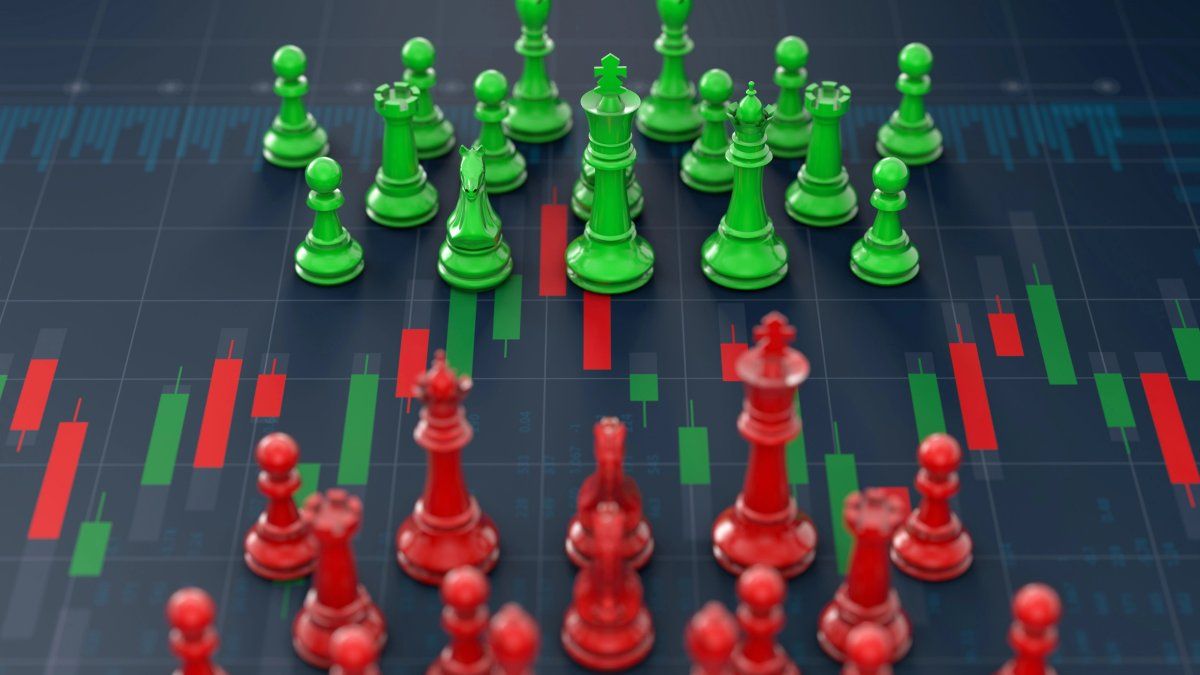The resurgence of the war climate in Middle East, As with all armed conflicts, it has its impact on global markets, mainly, in this case, in oil price. That is why Investor strategies, about all those who act on Wall Street or with Cedears, are redesigned in search of covering possible economic blows.
“Geopolitical conflicts, especially those of war scale, generate strong distortions in global markets. Although risk and uncertainty increase, there are sectors that have historically shown anti -cyrical or even positive behavior in these contexts. Understanding these movements allows investors to build more resilient wallets, “said the financial advisor Gabriel Bagattini (“Finance with Gabriel”) to the scope.
Until now the markets had taken as positive the delay of the US president to actively participate in the conflict, However this changed the weekend when Donald Trump announced the attack on nuclear bases in Iran. The answer was swift and this was read by experts as the possibility of increasingly climbing the conflict with an immediate impact on the oil market.
“The uncertainty that returned with the missile exchanges that Israel maintained and Iran now deepened above all in How will the situation impact on the price of oilsince after the attack the leaders of the Persian country assured that They would block the Ormuz Strait, where 30% of the world crude passes“He warned on Monday Bursatile
War in the Middle East: which sectors would be benefited
For Bagattini there are at least four sectors that could potentially operate up to this context: Energy -of the hand of oil and natural gas -, precious metals and raw materials, mass consumption, and cybersecurity along with critical technology.
“The interruption of the global supply drives the prices of hydrocarbons. Extractor and distributors are favored by the increase in barrel and sustained energy demand, “the expert told this medium. In this regard, the mentioned the CEDEARS ETF XLEwhich follows energy values, and in terms of metals he indicated that “gold acts as an active refuge. In addition, Tensions in producing regions can raise the prices of key raw materials such as wheat, lithium or copper. “
As for the Mass consumption (“Consumer Staples”) said that it is “A resilient sector with inelastic demand”. Food, Drink, Hygiene and Cleaning Companiesaccording to the analyst, they maintain stable sales and transfer the increase in consumer costs, which makes them attractive defensive assets. In this regard, companies that consider interesting, such as Procter & Gamble, Johnson & Johnson, Coca-Cola.
Finally he mentioned the air of the Cybersecurity and critical technology: “Digital war is part of the new war paradigm. Cybersecurity signatures receive greater investment from the need to protect strategic infrastructure and sensitive data“
The economist Elena Alonso It also coincided with this analysis: “The sectors that historically have been favored are Energy, gold and also those who are linked to defense and Military technology. For example, within what is energy, companies linked to oil and al gas They generally benefit from the rise in the prices of energy commodities to what is the risk of supply. An ETF like Xle works well to cover yourself in that regard. Then gold and other precious metals. Also as a value of value before this uncertainty an asset that is the SPDR Gold Shares (GLD) That is a Yields“
For this expert, there are some clarifications to take into account: in regards to the sector of defense either Military technology While they can have better yields, it cannot be accessed from Argentina with Yields. And as for local assets, linked to the energy sectors, they are decoupling the global trend because other factors weigh: The perception of country risk and the lack of progress on the recategorization of the MSCI.
Recalibrate the strategy: what to take into account
Beyond betting on Energy sectors through CEDEARS ETF XLEor follow the value of gold as the GLDfor Alonso it is important keep liquidity in the portfolio, and look for interest rateseven in the short term. “Neither do you have to forget to have exchange coverage Because beyond that a depreciation of the exchange rate is not seen locally, any context of outside that affects us, that is exogenous, beyond what the government is doing to maintain the macro variables, they can affect. “
Source: Ambito
I am a 24-year-old writer and journalist who has been working in the news industry for the past two years. I write primarily about market news, so if you’re looking for insights into what’s going on in the stock market or economic indicators, you’ve come to the right place. I also dabble in writing articles on lifestyle trends and pop culture news.




